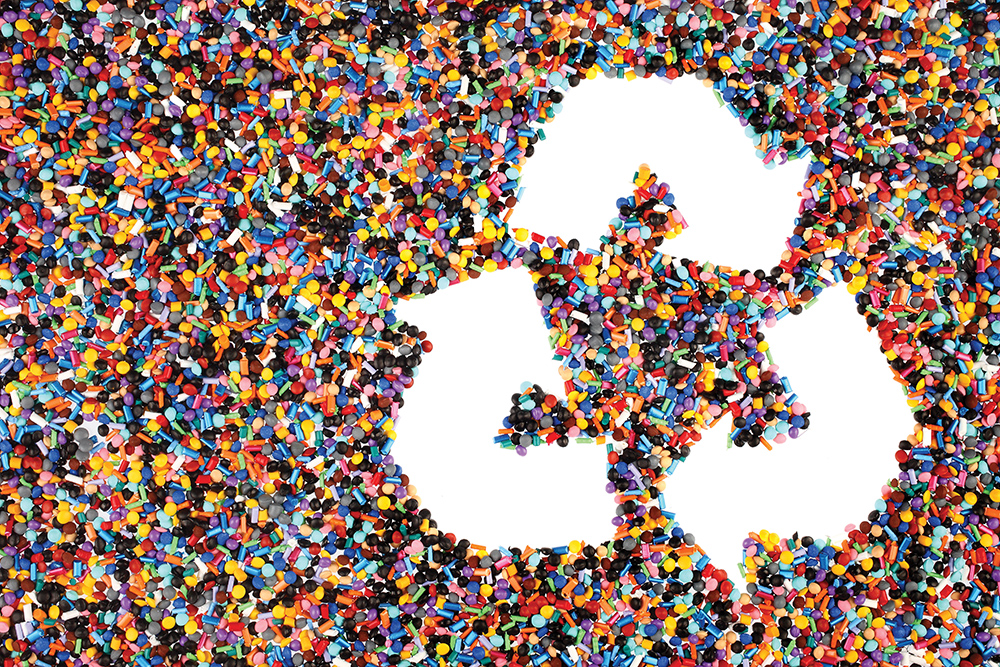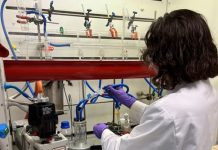Eight new research projects that will explore new and different ways of making, using and recycling plastics have been announced by the Science Minister, Chris Skidmore.
The researchers will investigate alternatives to fossil-based materials for plastics, as well as looking into the complex factors involved in the life cycle of plastic materials, from consumers’ and business’ needs and behaviours, to how to use technology to reclaim or break down plastics.
Through the recently published Bioeconomy Strategy, part of the modern Industrial Strategy, the government has identified producing less carbon intensive products, including plastics, as a key challenge area alongside reducing plastic waste. This will lead to a circular economy where greater emphasis is placed on ‘use, reuse and recycle’
Science Minister, Chris Skidmore said: “We have all seen the devastating effects that plastics waste has on our environment, threatening the biodiversity of our oceans and introducing micro-plastics into the food chain.
“We are committed to tackling this problem, from developing a plastic-eating bacteria to finding new ways to recycle. These projects have the potential to lead us to a cleaner, greener economy but also ensure the UK is at the forefront of the latest innovations and products that will be in high demand across the world through our modern Industrial Strategy.”
The announcement came on the day that the government unveiled its Resources and Waste Strategy. Among other initiatives, the Strategy puts the legal onus on producers of damaging waste, introduces a consistent set of recyclable materials collected from all households and businesses, and introduces a deposit return scheme, subject to consultation, to increase the recycling of single-use drinks containers.
The eight, far-reaching projects are based at single higher education institutions and are multidisciplinary collaborations that will bring new thinking to the plastics challenge. The projects commence in early 2019 and include:
Designing-out Plastic Waste, led by University College London, which will create a new bacteria-based recycling technology for plastics that will consume plastics, breaking them down into reusable material. A new Plastics Waste Innovation Hub will also be created at the University, bringing together researchers and businesses to consider new and innovative methods to recycle plastics.
Evolving a circular plastics economy led by the University of Hull, will seek to develop biodegradable biopolymers, meaning the plastics will not persist in the environment and can be repurposed following disposal and breakdown.
RE3 – Rethinking Resources and Recycling led by The University of Manchester will develop graphene membrane filters for the removal of micro-plastics in water and a new chemical-method of recycling contaminated and mixed soft plastic materials.
The projects were successful in the Creative Circular Economy Approaches to Eliminate Plastics Waste competition, and are among the first to be funded through the Plastics Research Innovation Fund (PRIF).
The Fund, managed by UK Research and Innovation, is engaging Britain’s best scientists and innovators to help move the country towards more circular economic and sustainable approaches to plastics.
It is delivered via the Engineering and Physical Sciences Research Council (EPSRC), Innovate UK, with strategic oversight from Professor Duncan Wingham, Executive Chair of the Natural Environment Research Council (NERC).
This follows the recent government announcement confirming that £60m through the Industrial Strategy Challenge Fund will research more sustainable packaging being produced. The specific aim of one of the projects will seek to create new forms of packaging and plastic made from farming, food and industrial waste, moving away from oil-based plastics.









